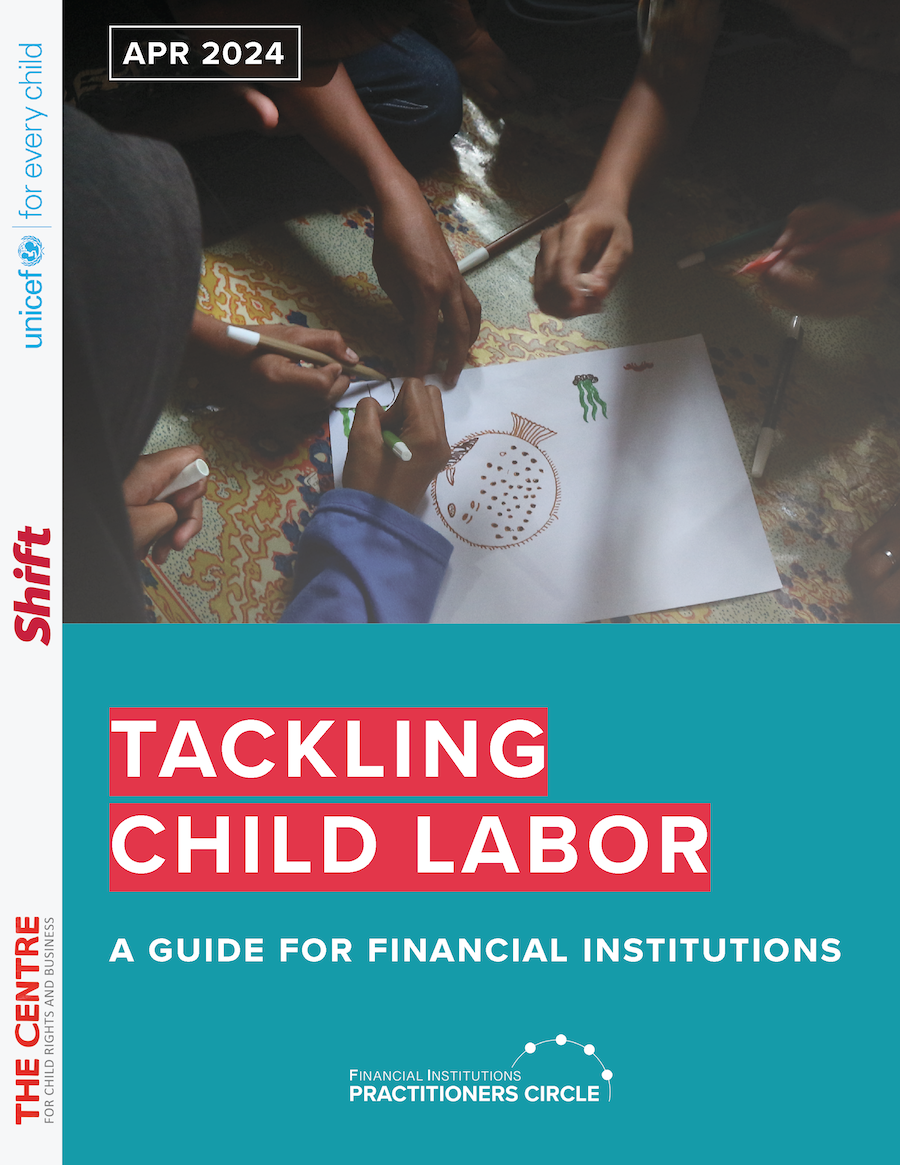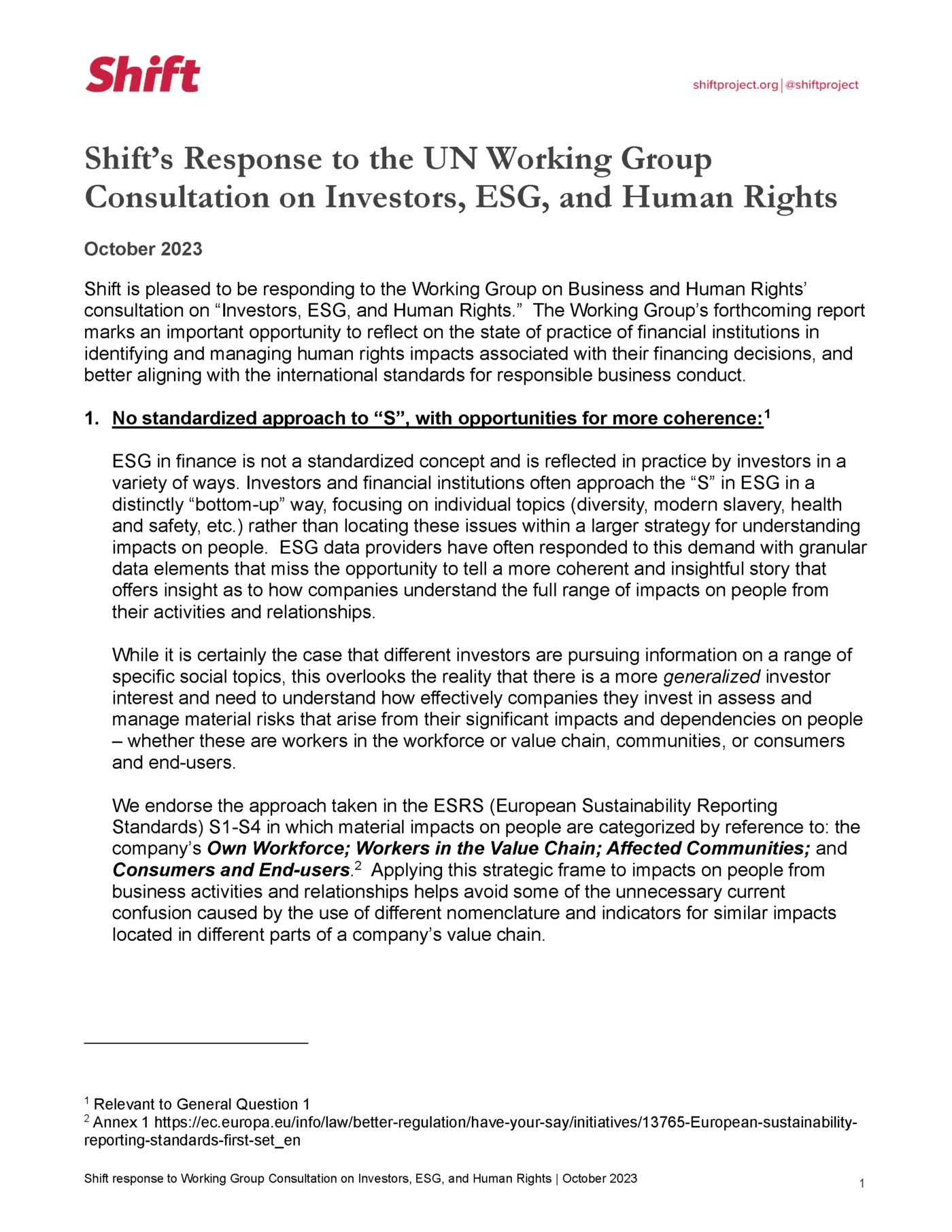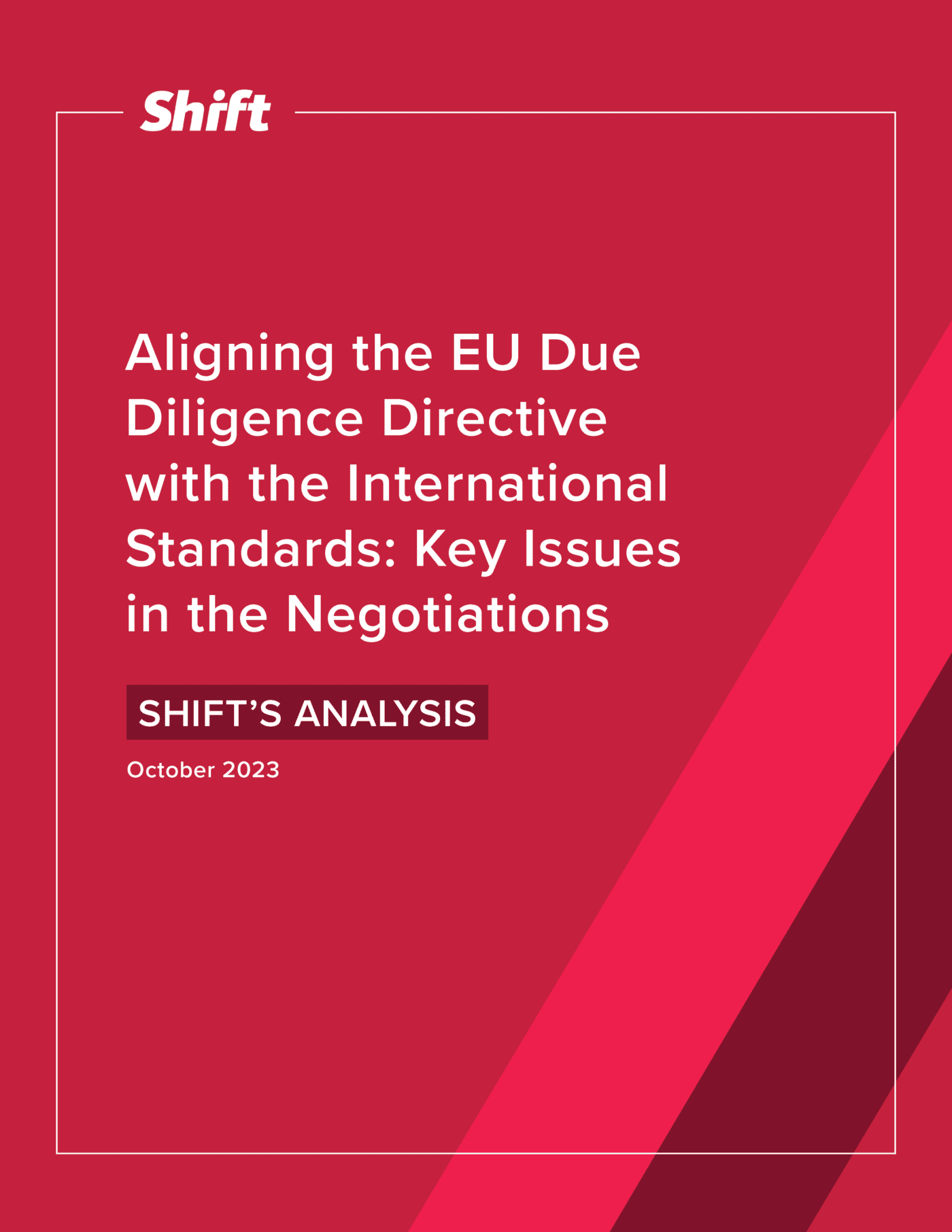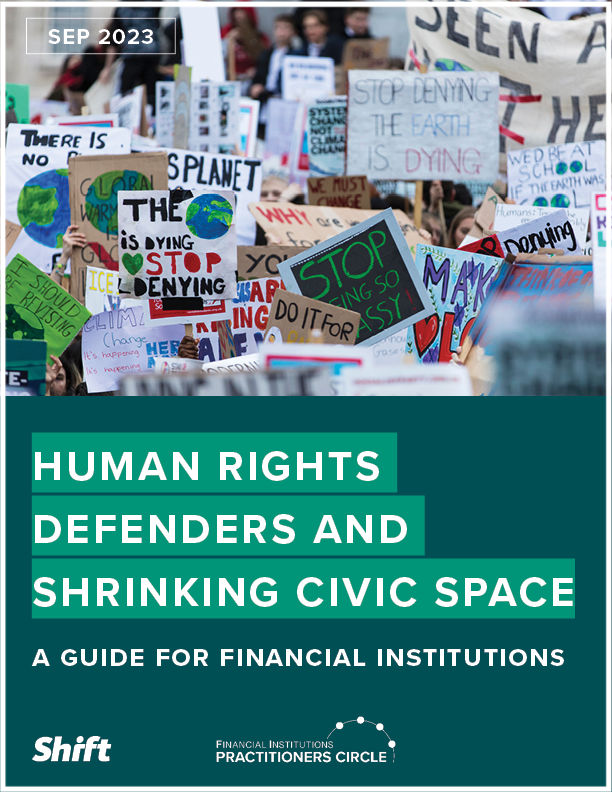A unique program to support companies that are serious about respecting human rights.
Shift’s Business Learning Program supports companies that want to strengthen their human rights approach. Rather than do the work for them, we help businesses build the internal capacity they need to meet their responsibility to respect human rights. True commitment to human rights means being willing to do the heavy lifting to transform processes, structures and mindsets. It requires stepping out of the office and engaging with the people who are most affected by a company’s products, services and activities, including through its value chain. It means going beyond cosmetic changes and off-the-shelf fixes to put in place coherent, sustainable solutions and rights-respecting practices.
Shift’s Business Learning Program supports companies from a wide variety of industries through a combination of peer-learning and tailored advisory support. As practice develops beyond the basic aspects of UNGP implementation, we support companies to address specific challenges and opportunities, including those arising from developments in standards and legislation.
Shift brings its expertise on key and emerging themes, and its deep understanding of the drivers of systemic human rights risks to:
- Enhance collaboration and learning among participating companies on human rights challenges in areas of shared interest
- Focus on issues and practices that are critical to improved performance and impact
- Leverage the learnings beyond participating companies by taking key insights to wider audiences to help scale up and speed up change and shape due diligence and reporting standards to support effective practices
Through our Business Learning Program, we aim to build and capture impactful practices, and use these as a catalyst for broader systems change.
Benefits of the Program
Our promise is to provide frank advice that is principled and supportive advice to business.
Companies that join the BLP benefit from access to:
- Dedicated, tailored advisory support;
- Practice Groups on key issues in human rights due diligence, embedding and remedy; and
- Shift’s annual expert workshop on the most critical challenges and opportunities for human rights practitioners
_____
TAILORED & STRATEGIC & OPERATIONAL SUPPORT
Business Learning Program participants work with Shift experts to design an action-oriented work plan that is tailored to the specific needs and challenges of the business. Shift’s mission-driven approach focuses on capacity-building to enable long-term, sustainable change.
CROSS-INDUSTRY LEARNING
Shift’s BLP Practice Groups bring together small groups of committed companies to apply fresh thinking and develop new approaches to the most pressing human rights challenges, with a focus on complex and systemic issues.
Our cross-sectoral and cross-functional approach takes advantage of the insights and perspectives of companies that are serious about human rights to deepen learning and collaboration, develop and test innovative solutions, and drive impactful action.
ACCESS TO OUR FLAGSHIP WORKSHOPS
Each year, Shift hosts an in-person workshop for BLP member companies. Workshop themes are chosen to enable companies to take a deep dive into the application of the UNGPs concepts to specific current contexts and challenges and explore solutions. Past themes have included climate action and human rights, taking effective action in supply chain relationships, remedy and grievance mechanisms, how to design and implement effective stakeholder engagement, and challenges and opportunities of emerging due diligence legislation.
Criteria for Admission
We are purposely selective about who we work with.
______
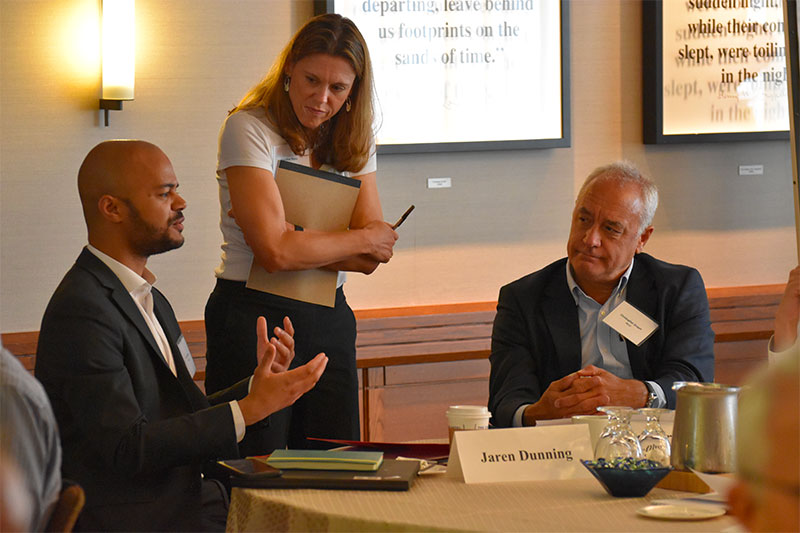
Our Business Learning Program is a two-way street. We support companies as they build their capacity and systems. In turn, each engagement is an opportunity to expand our own knowledge and understanding of how the UNGPs are put into action.
That’s why we’re careful about who we partner with for the long term. We want to make sure that those who join are serious about taking action, open to exploring innovative approaches, and have the potential to make meaningful change happen.
_______
BOARD-APPROVED CRITERIA
- Evidence of high-level commitment to business and human rights
- Demonstrated organizational capacity to drive the implementation process
- Support for our broader, mission-driven learning approach
- Attention to conflicts with international legal standards
By building long-term relationships with companies in the Business Learning Program, we are consistently able to equip them with the tools, resources and motivations to drive better human rights outcomes for people affected by their business.
David Vermijs, DIRECTOR OF BUSINESS ENGAGEMENT
As a mission-driven, nonprofit organization, we take pride in working with those companies with which we can have the greatest impact and that we can really learn from.
Find out more
To learn more about Shift’s Business Learning Program and inquire about current availability, contact us at info [at] shiftproject [dot] org.
You can also visit our BUSINESS ENGAGEMENT page to learn more about other ways in which we work with companies and their stakeholders, and our Financial Institutions Practitioners Circle, which focuses on work with banks and export credit agencies.
Visit our CONTACT page to learn more about other ways to connect with Shift.
Current Participants
- AB InBev (Food and Beverage, joined in 2019)
- ABN AMRO (Banking, joined in 2014)
- Allied Irish Banks (Banking, joined in 2022)
- Barclays (Banking, joined in 2022)
- BHP (Mining, joined in 2018)
- Chanel (Luxury, joined in 2019)
- De Beers Group (Jewelry, joined in 2021)
- Equinor (Energy, joined in 2015)
- Ericsson (Technology, joined in 2012)
- Ferrero (Food and Beverage, joined in 2018)
- Gran Tierra Energy (Energy, joined in 2021)
- Hitachi (Diversified group, joined in 2012)
- Inditex (Apparel, joined in 2018)
- ING (Banking, joined in 2021)
- Johnson & Johnson (Pharma and FMCG, joined in 2020)
- L’Oréal (Fast-moving Consumer Goods, joined in 2020)
- Maersk (Logistics, joined in 2022)
- PepsiCo (Food and Beverage, joined in 2015)
- Tetra Pak (Packaging, joined in 2022)
- Total (Energy, joined in 2014)
- UPM (Biofore, joined in 2017)

